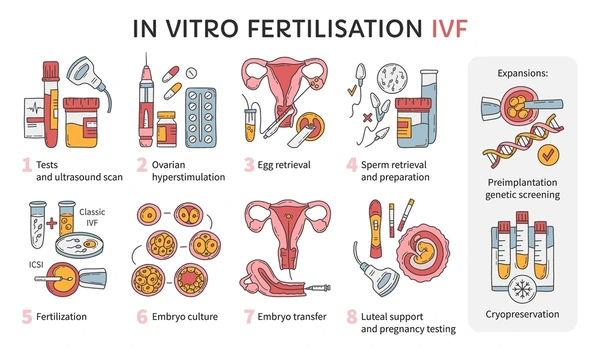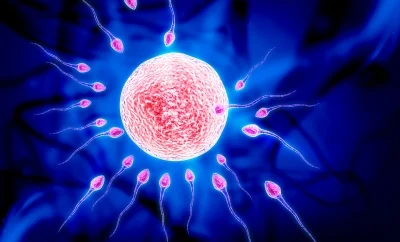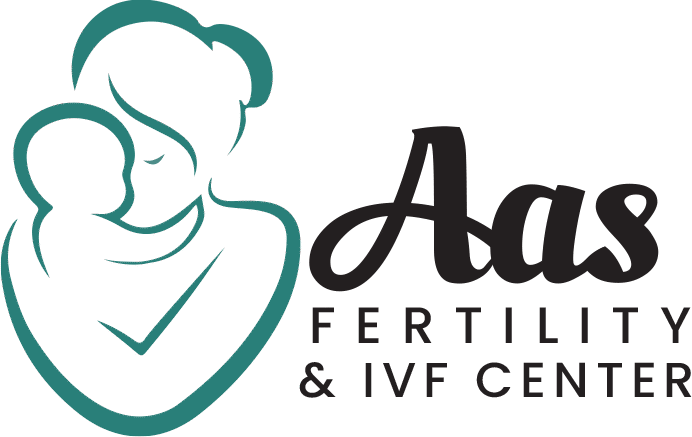IVF
In Vitro Fertilization (IVF) is an advanced assisted reproductive technology (ART) that involves combining a woman’s eggs and a man’s sperm in a controlled laboratory environment to create an embryo. The term “In Vitro” literally means “outside the body,” so the entire fertilization process takes place outside the human body. Once fertilization occurs, the embryo is closely monitored in a laboratory setting until it reaches a suitable stage for transfer into the woman’s uterus.
Historical Milestones:
The concept of fertilization outside the human body gained momentum in the 1960s, leading to the birth of the first test-tube baby, Louise Brown, in the United Kingdom in 1978. This breakthrough marked a significant advancement in the field of medicine and infertility treatment. Since then, assisted reproductive techniques have continued to evolve, with IVF and ICSI (Intracytoplasmic Sperm Injection) becoming widely recognized and accepted as effective methods for couples struggling to conceive.
Infertility Prevalence:
Infertility has become a pressing global concern, affecting approximately 10-15% of couples. Various factors can contribute to infertility, including male and female issues such as sperm abnormalities, ovulatory dysfunctions, and blocked fallopian tubes. Environmental factors, increased age, and lifestyle choices can also play a role. IVF offers hope to couples facing infertility challenges, providing a potential solution to their desire for parenthood.

The Role of Fertility Specialists:
Fertility specialists are trained medical professionals who diagnose and treat infertility and reproductive issues. They play a crucial role in IVF treatments, providing expert guidance, advanced treatment plans, and emotional support to couples throughout their journey. Fertility specialists offer comprehensive care, including diagnosis, treatment options, and counseling on reproductive health and infertility.
Who Benefits from IVF?
- Blocked fallopian tubes
- Endometriosis
- Low sperm count or motility
- Advanced maternal age
- Genetic disorders
It’s important to consult with a fertility specialist to determine if IVF is the right option for you and to discuss the potential risks and benefits.

The IVF Process:
The IVF process typically involves several key stages:
- Ovarian Stimulation: Fertility medications are administered to stimulate the ovaries to produce multiple eggs.
- Egg Retrieval: A minor surgical procedure is performed to retrieve the mature eggs from the ovaries.
- Fertilization: The retrieved eggs are combined with sperm in a laboratory setting.
- Embryo Development: The fertilized eggs, now called embryos, are monitored for their development.
- Embryo Transfer: One or more embryos are carefully transferred into the woman’s uterus.
- Luteal Phase Support: Medications are often prescribed to support the uterine lining and maintain pregnancy.
- Medications and Protocols:
IVF treatments involve various hormones to regulate the cycle, prevent premature ovulation, and stimulate the ovaries. Common medications include: - Follicle-Stimulating Hormone (FSH): Used to stimulate the production of multiple eggs.
- Luteinizing Hormone (LH): Administered for final egg maturation and release.
- Anti-Mullerian Hormone (AMH): Helps predict ovarian response to fertility drugs.
Progesterone and - Estrogen: Support the uterine lining and maintain early pregnancy.
Human Chorionic - Gonadotropin (hCG): Plays a role in egg maturation and luteal phase support.
Book a Consultation with Our Doctors

+92 311 1100251
+92 334 4052081
Mon to Sat: 11:00 – 05:00
Or you can ask the coordinator
